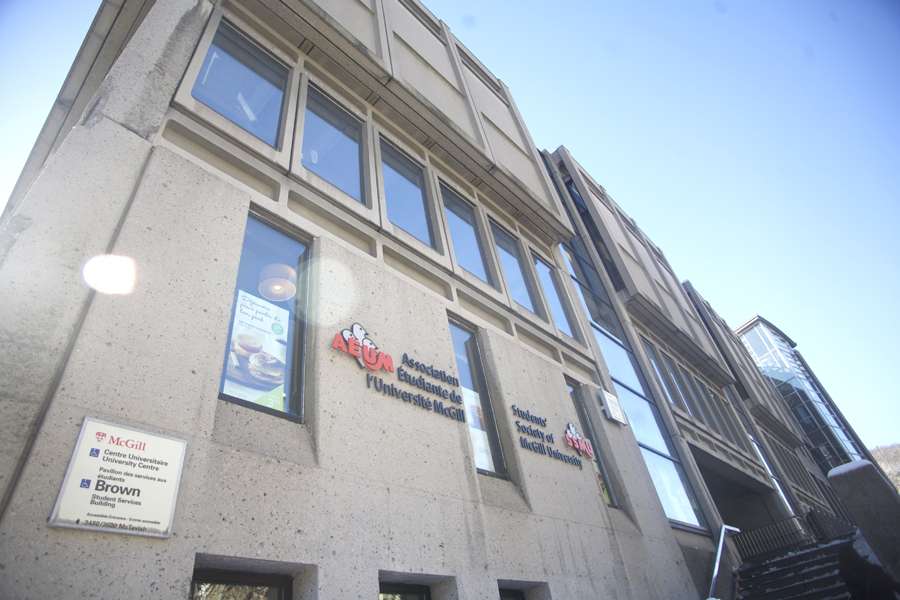In the past couple of years, the Students’ Society of McGill University (SSMU) has had trouble obtaining a mandate from students to spend their money. The student body recently rejected SSMU’s special referendum question for a membership fee increase, which would have increased the base fee by $5.50 per term. A similar situation happened to SSMU with the building fee referendum, which was rejected in Winter 2014 and then passed when a similar question was posed in Fall 2014. SSMU is currently putting together a second package of fees to make up for a budget shortfall. Now, according to Vice-President Finances & Operations Zacheriah Houston, budget adjustments and cuts will be to the tune of $100,000. In spite of this urgency, only 16.3 per cent of students voted. Although the membership fee only failed by 17 votes, this result is only the most recent example of the broken dialogue between the student body and SSMU; the majority of students either did not hear the urgency of the request or did not listen. The future success of SSMU requires students to trust SSMU to spend money properly, and to see that dialogue with SSMU is necessary to improve student life at McGill.
In light of the failure of the fee increase, SSMU needs to allocate its money more effectively. For example, this past fall’s 4Floors event was budgeted to sell out for 1,000 people at $25 a ticket. In the end, only 533 tickets were sold, resulting in a loss of $8,000. Students need to be able to trust SSMU to spend money on things that matter. In Winter 2014, SSMU opened the Student Run Café (SRC), The Nest, which lost $20,000 its first semester of operation. SSMU then opened a second student-run café while The Nest was losing money. While SSMU had the admirable intent of promoting student spaces, it was not sensible to operate two cafés at a loss during a budget shortage. It sends the wrong message to students when SSMU requests a fee increase while emphasizing seemingly non-essential events and services at a heavy loss.
The problem that SSMU faces is circular: To gain students’ approval, they need to spend money ‘effectively,’ but obtaining adequate funds to provide these services is dependent on the faith of the student body. If students disapprove of SSMU’s use of funds, the answer is not to cut SSMU off. Students need a functioning student society to support basic clubs and services, and to advocate for students to the administration and the province. A strong representative on campus is essential in this time of austerity and budget cuts. SSMU can be a strong advocate for students, but only if students empower them. At the moment, students have trouble believing SSMU will spend money they receive effectively.
To rebuild this relationship, there needs to be a dialogue between the student body and SSMU about the best use of student funds. SSMU’s event to discuss the future of the SSMU building is a positive step towards involving students in the process of how money is allocated to student-run initiatives such as The Nest and the SRC. Another step SSMU could take with students is to release its finances for events, clubs, and services by email periodically to improve transparency and show students that their money is being spent appropriately. Student representatives must also do more to increase the flow of information from Council to students. At the moment, budget information is most transparent to those involved in student politics. While representing students on SSMU Council, representatives must recall their obligation to open channels of information to students within their faculties beyond faculty societies and departmental associations.
Such a dialogue is necessary to build participation in SSMU, but is also dependent on the involvement of students. If SSMU is to rebuild its financial viability while extending and improving the services it provides, students need to consider how their lack of participation is harmful to the very services they want.
Students should be prepared when SSMU opens a dialogue on the future spending of funds. For SSMU to best serve student needs, students must participate in the process. SSMU is putting forward an alternative package of club fees for students to vote on. Rather than simply voting “No” on future referendums regarding fees, students should listen to what SSMU has to say. Yes, referendum questions should be responsive to the demands of students. But it is time that students stop treating every referendum as a vote of confidence on the entire institution of SSMU. The future viability of SSMU depends on an active partnership between students and the union.









